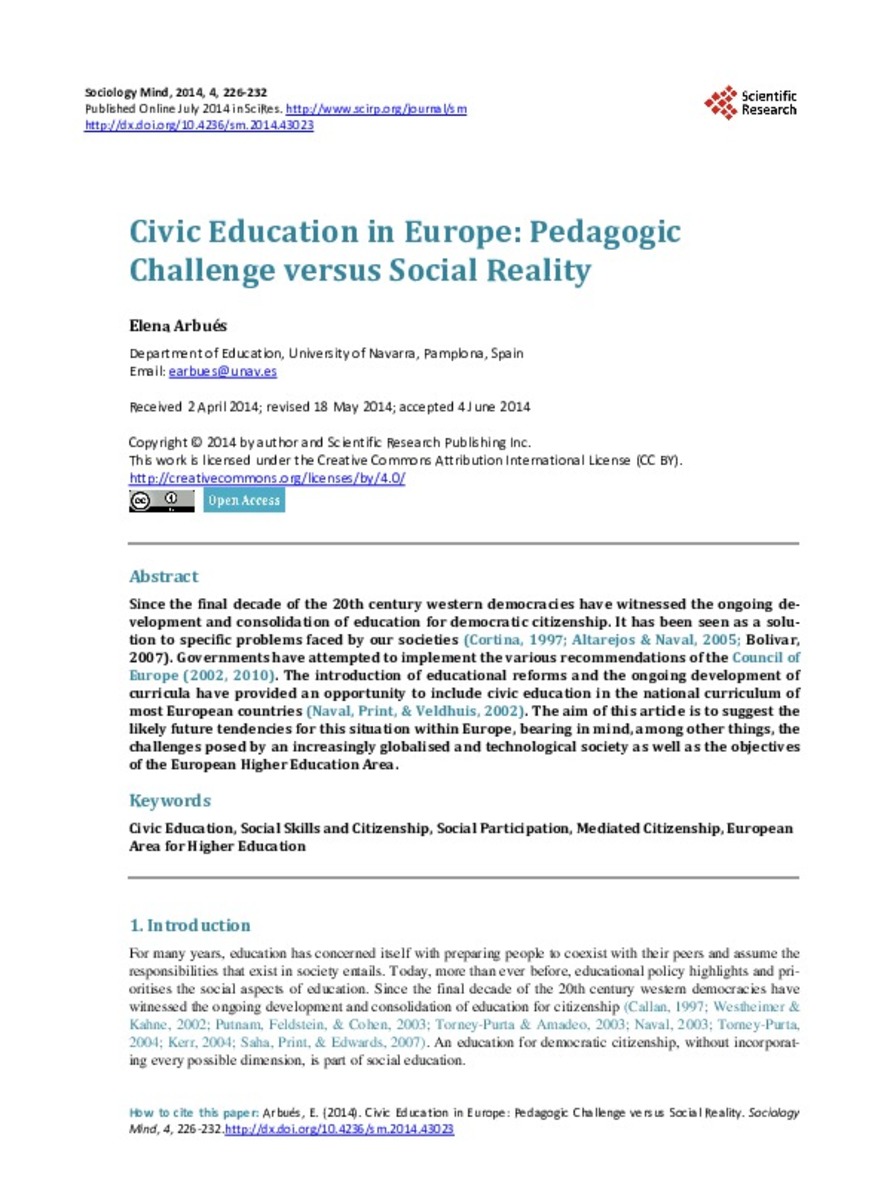Full metadata record
| DC Field | Value | Language |
|---|---|---|
| dc.creator | Arbués, E. (Elena) | es_ES |
| dc.date.accessioned | 2016-12-20T09:41:21Z | - |
| dc.date.available | 2016-12-20T09:41:21Z | - |
| dc.date.issued | 2014 | es_ES |
| dc.identifier.citation | Arbués, E. (2014) Civic Education in Europe: Pedagogic Challenge versus Social Reality. Sociology Mind, 4, 226-232. | - |
| dc.identifier.issn | 2160-083X | - |
| dc.identifier.uri | https://hdl.handle.net/10171/42558 | - |
| dc.description.abstract | Since the final decade of the 20th century western democracies have witnessed the ongoing development and consolidation of education for democratic citizenship. It has been seen as a solution to specific problems faced by our societies (Cortina, 1997; Altarejos & Naval, 2005; Bolivar, 2007). Governments have attempted to implement the various recommendations of the Council of Europe (2002, 2010). The introduction of educational reforms and the ongoing development of curricula have provided an opportunity to include civic education in the national curriculum of most European countries (Naval, Print, & Veldhuis, 2002). The aim of this article is to suggest the likely future tendencies for this situation within Europe, bearing in mind, among other things, the challenges posed by an increasingly globalised and technological society as well as the objectives of the European Higher Education Area. | - |
| dc.rights | info:eu-repo/semantics/openAccess | - |
| dc.subject | European Area for Higher Education | - |
| dc.subject | Social Participation | - |
| dc.subject | Civic Education | - |
| dc.subject | Social Skills and Citizenship | - |
| dc.subject | Mediated Citizenship | - |
| dc.title | Civic education in Europe: pedagogic challenge versus social reality | es_ES |
| dc.description.note | This is an open access article distributed under the Creative Commons: Atribution License (cc BY) | - |
| dc.identifier.doi | http://dx.doi.org/10.4236/sm.2014.43023 | - |
Files in This Item:
Statistics and impact
Items in Dadun are protected by copyright, with all rights reserved, unless otherwise indicated.






